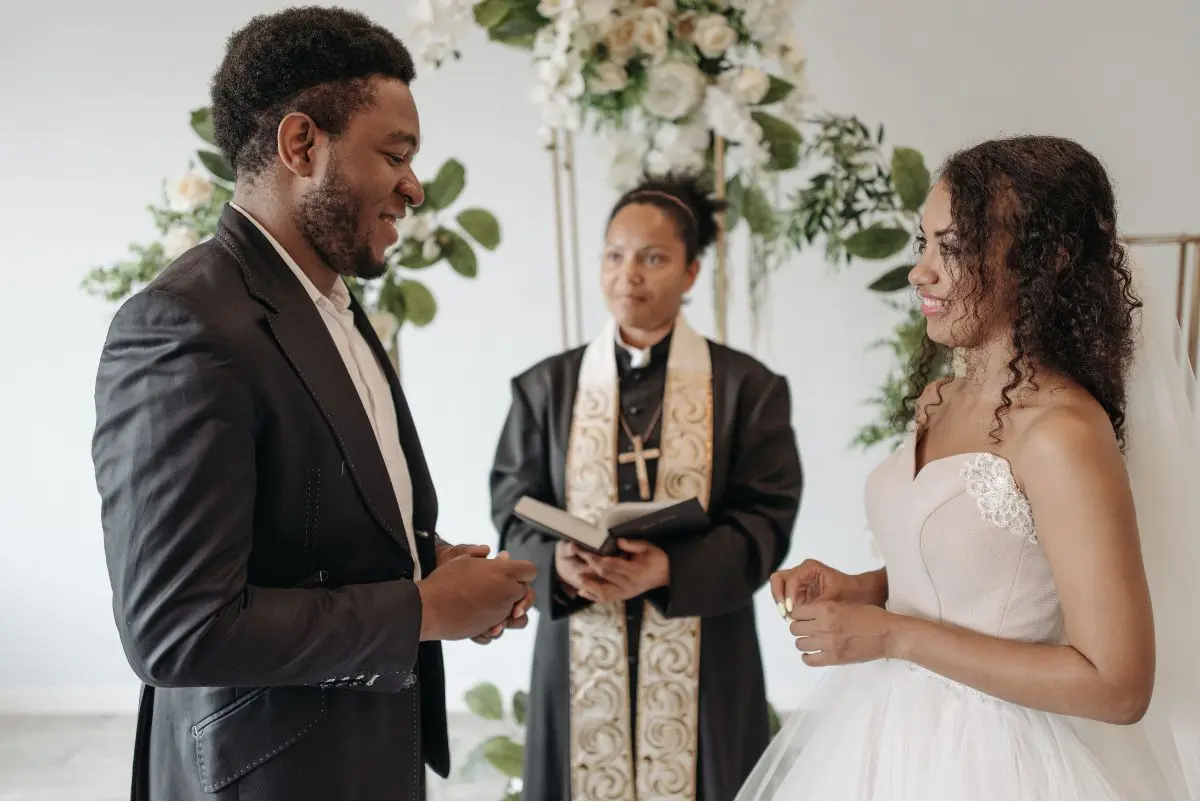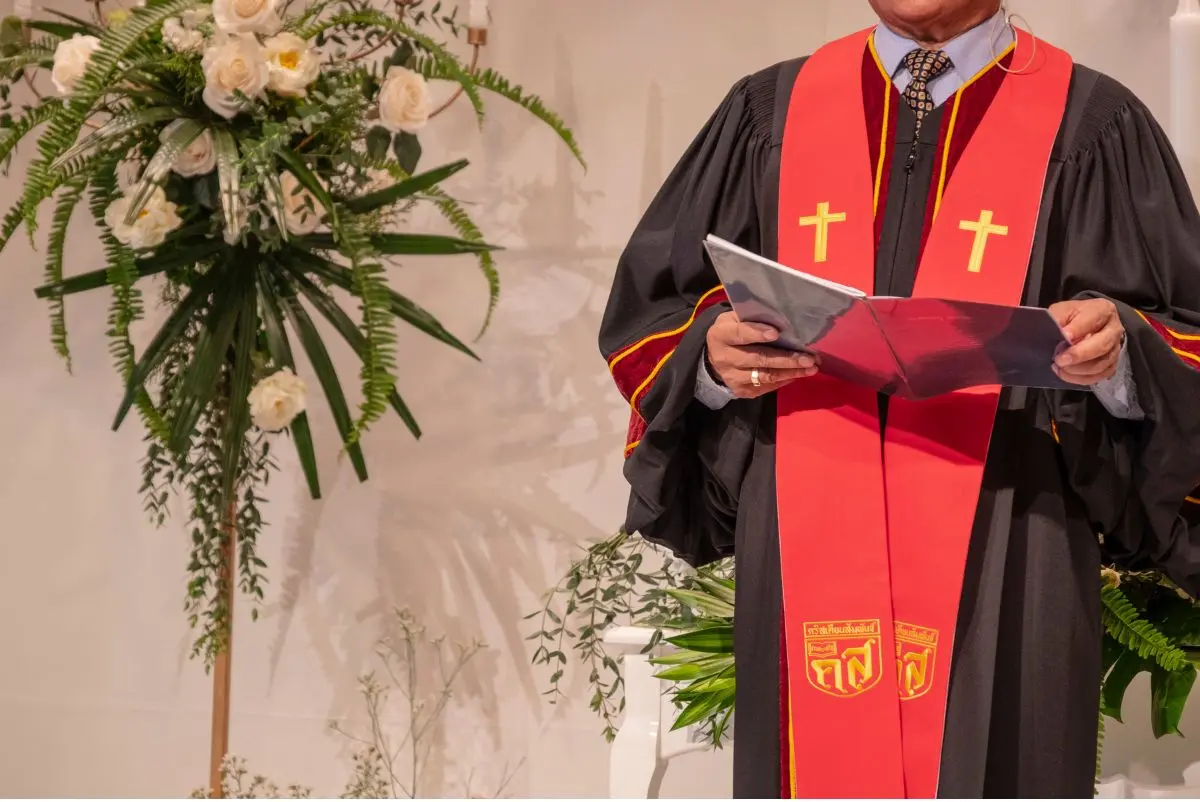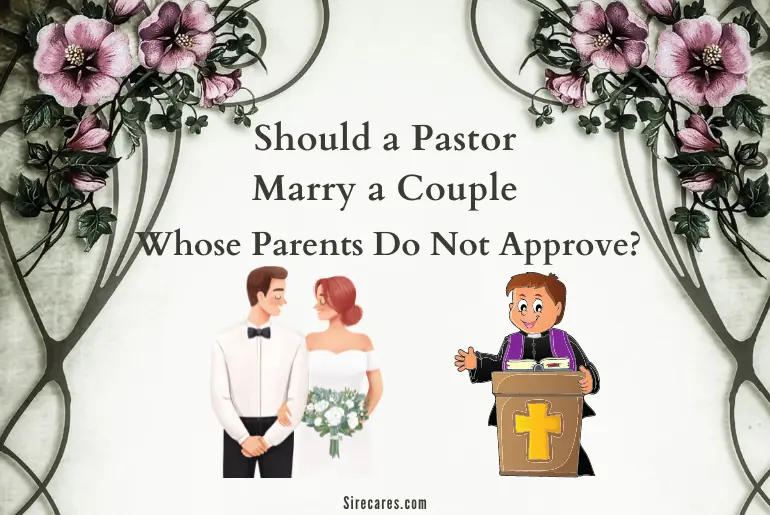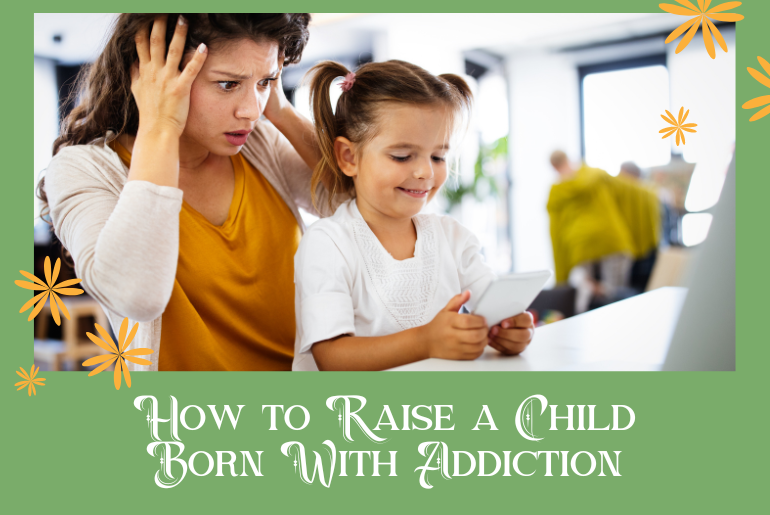Love is a beautiful emotion that often transcends boundaries and challenges, including parental disapproval. When couples find themselves in a situation where their parents do not approve of their union, it raises a significant question for pastors and religious leaders: Should a pastor marry a couple whose parents do not approve? This post delves into the complexities of this situation, addressing the concerns, ethical considerations, and potential solutions.
Should a Pastor Marry a Couple Whose Parents Do Not Approve?

Amid differing opinions and values, it’s important for pastors to approach this situation with sensitivity and wisdom. While there’s no definitive answer, the decision should be made after careful consideration of various factors:
1. Balancing Love and Faith
Love and faith often go hand in hand, but pastors find themselves in a delicate situation when parents’ disapproval clashes with the couple’s devotion. Striking a balance between respecting parental concerns and honouring the couple’s commitment is crucial.
2. Understanding Parental Concerns
Empathizing with the parents’ concerns is pivotal. As pastors, understanding the reasons behind the disapproval can help mediate and offer solutions that address their worries while supporting the couple’s desires.
3. The Role of Faith in the Decision
Faith plays a central role in the lives of many couples seeking a religious wedding ceremony. Pastors must weigh the tenets of their faith against the couples’ genuine love and commitment to determine the most appropriate course of action.
4. Providing Counsel and Mediation
Acting as a mediator and counsellor, pastors can facilitate open conversations between the couple and their parents. Effective communication might lead to a better understanding of each perspective and a potential resolution.
5. Respecting Autonomy and Choice
Respecting the couple’s autonomy as adults capable of making their own choices is essential. Pastors can guide them in considering the options while respecting parental opinions.
Potential Solutions for Pastors
- Private Ceremonies: Consider conducting a private ceremony to honour the couple’s commitment while minimizing potential conflicts with disapproving parents.
- Parental Involvement: Encourage the couple to involve their parents in non-religious wedding festivities, fostering an environment of inclusion and understanding.
- Pre-Marital Counseling: Suggest pre-marital counselling sessions that involve both the couple and their parents, fostering dialogue and addressing concerns.
When Should a Pastor Say ‘No’ to a Wedding?

While pastors often strive to spread love and blessings, there are scenarios where it becomes necessary to exercise discernment and consider saying ‘no’ to officiating a wedding. The decision to decline a wedding request is never taken lightly, but there are circumstances in which a pastor’s ethical responsibility may lead them to this difficult conclusion.
1. Lack of Genuine Intent:
If the pastor perceives that the couple is not entering into marriage with sincere intentions or that their commitment might not stand the test of time, saying ‘no’ could be warranted. A pastor’s duty ensures the union is founded on genuine love and dedication.
2. Misalignment with Faith Principles:
When a couple’s wedding plans clash significantly with the faith principles upheld by the pastor’s denomination or beliefs, officiating the ceremony might be ethically challenging. This pertains to situations like interfaith marriages that contradict religious teachings.
3. Disregard for Family Concerns:
If the wedding plans disregard or undermines the concerns of the couple’s families, it might signal a lack of consideration and respect for important relationships. A pastor may need to decline in such cases to avoid further straining family ties.
4. Legal or Moral Issues:
In cases where the marriage might raise legal or moral concerns, such as underage or non-consensual unions, a pastor should prioritize the well-being and safety of all parties involved. In these instances, saying ‘no’ is an ethical imperative.
5. Lack of Adequate Preparation:
If the couple appears unprepared for the responsibilities of marriage, either due to their age, emotional maturity, or other reasons, a pastor might choose to delay the ceremony until the couple is better equipped for the journey ahead.
6. Violation of Religious Laws:
If the wedding plans involve actions that directly violate religious laws or principles, a pastor may find themselves ethically obligated to decline. It’s vital to uphold the sanctity of religious tenets.
7. Unresolved Conflicts:
If unresolved conflicts between the couple could jeopardize the foundation of their marriage, a pastor might recommend seeking a resolution before proceeding with the wedding. Addressing these issues could prevent future difficulties.
8. Pressure or Coercion:
If either party is being coerced, pressured, or forced into the marriage against their will, a pastor must prioritize their well-being and decline the ceremony until all parties are in agreement willingly.
9. Lack of Commitment to Growth:
Marriage is a journey of growth and companionship. If the couple displays a lack of commitment to growing together or working through challenges, it might be wise for a pastor to encourage them to address these concerns before proceeding.
10. Focus on Publicity or Materialism:
If the couple’s motivations for marriage appear to be centred around gaining attention, material gain, or social status, a pastor may choose to decline the request, as these motivations can hinder the authentic bond of marriage.
Must I Wait for My Parents to Approve of My Future Spouse?
The question of whether one must wait for parental approval of a future spouse is a complex and personal consideration. While parental blessings can bring familial harmony and support, individual happiness and the foundation of a strong partnership should also be paramount.
Striking a balance between honouring parental concerns and making decisions that align with one’s values and aspirations is crucial. Ultimately, the decision should reflect an individual’s understanding of their own needs and goals while also fostering open communication and respect within the family dynamic.
FAQs
Can love truly conquer parental disapproval?
Love is powerful, but addressing concerns is essential to build a foundation for a lasting marriage.
What if the parents’ disapproval is based on religious beliefs?
Exploring how faith aligns with love and making decisions rooted in compassion and respect is vital.
What if my parents don’t approve of my marriage?
Navigating parental disapproval can be challenging, but it’s important to prioritize open communication and understanding. Seek ways to address their concerns while also considering your own feelings and the dynamics of your relationship.
Do you need parents’ approval for marriage?
While parental approval is valuable, it’s not an absolute requirement for marriage. Ultimately, the decision should consider your feelings, your partner’s, and the dynamics of your relationship with your parents.
How important is parental approval to the success of a marriage?
Parental approval can contribute to family harmony, but the compatibility, communication, and commitment between partners primarily determine the success of a marriage. Open dialogue and mutual understanding play crucial roles.
Is it OK to marry against parents’ will?
Marriage decisions involve complex factors. While respecting parents’ opinions is important, marrying against their will might be necessary if you believe in the strength of your relationship and your partner. Communication and sensitivity are key.
Conclusion
Navigating the intricacies of marrying a couple whose parents do not approve is a multifaceted task requiring empathy, understanding, and faith. While there’s no one-size-fits-all answer, pastors can play a pivotal role in guiding couples through this challenging journey. By approaching the situation with love and compassion, pastors can uphold the sanctity of marriage while respecting the values of all parties involved.

Dedicated father, an accomplished psychologist, and an experienced educationist. With a passion for guiding parents on the rewarding journey of raising children, I am the perfect companion for all your parenting needs. My insightful and practical advice, coupled with my wealth of experience, makes me the go-to expert for all matters related to parenting. Follow this blog for a glimpse into the world of effective parenting and learn how to navigate the ups and downs of this beautiful journey with confidence and grace.





2 responses to “Should a Pastor Marry a Couple Whose Parents Do Not Approve?”
Your article was a great read! You have a way of making topics resonate with a wide audience.
Thank you for your comment